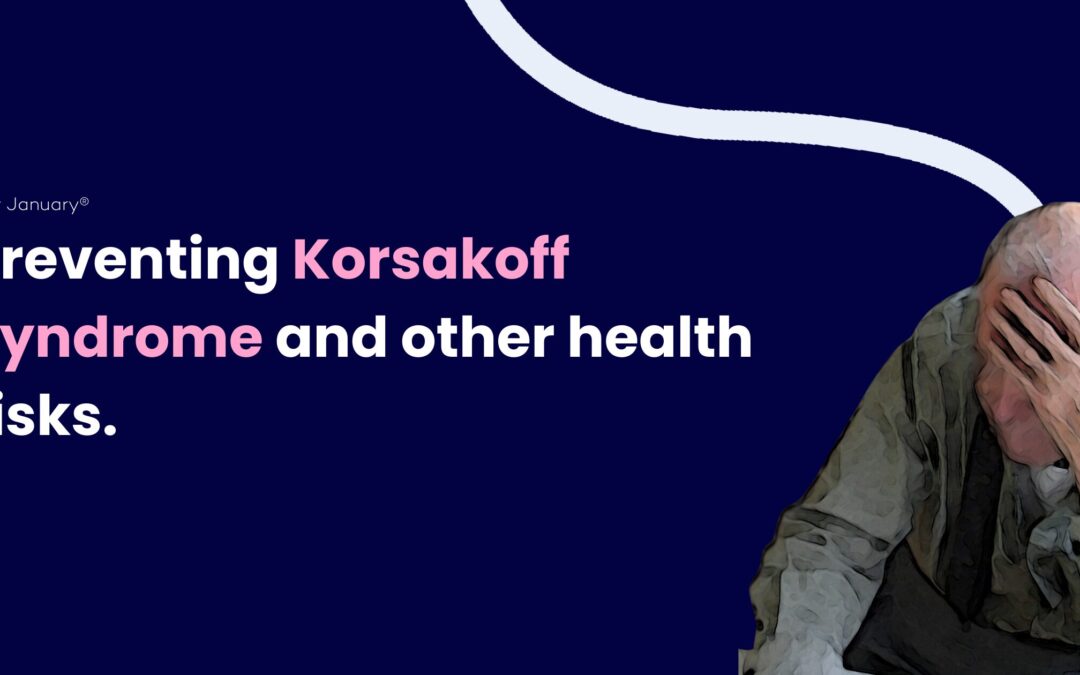Taking part in Dry January® means committing to 31 days without alcohol. While the immediate benefits—better sleep, improved energy, and even saving money—are obvious, the real magic happens after those 31 days are over.
Dry January® is more than just a break from alcohol; it’s a reset. Research by the University of Sussex has found that six months after completing Dry January® with the support of Alcohol Change UK’s Try Dry® app or coaching emails, over 70% of participants continue to drink more healthily¹. This means they’ve learned valuable skills to manage their drinking, boost their wellbeing, and improve their long-term health.
The Benefits Go Beyond January
So, how does just one month off alcohol create such lasting change? For many, Dry January® is a powerful reminder that we don’t need alcohol to have fun, relax, or socialise. This experience helps us rethink how much we drink throughout the year. When people realise, they can feel great without alcohol, they tend to make better choices going forward—drinking less and more mindfully.
That’s good news because excessive alcohol consumption is linked to over 60 health conditions, including liver disease, high blood pressure, depression, and even seven types of cancer.
But cutting back on alcohol isn’t just about cancer or liver disease—it can also help prevent conditions like Wernicke–Korsakoff syndrome, a form of dementia directly linked to alcohol consumption.
What is Wernicke–Korsakoff Syndrome?
Wernicke–Korsakoff syndrome, sometimes called alcohol-related ‘dementia,’ is caused by excessive alcohol consumption over time. Alcohol prevents the body from absorbing enough thiamine (vitamin B1), which is essential for brain health. Without enough thiamine, brain cells can become severely damaged, leading to lasting cognitive impairment.
The condition progresses in two stages:
- Wernicke’s encephalopathy – A short but intense period of brain inflammation that, if untreated, can lead to long-term damage.
- Korsakoff’s syndrome – A more chronic stage that resembles dementia, affecting memory, judgment, and the ability to live independently.
About 25% of those diagnosed with Wernicke–Korsakoff syndrome who receive treatment make a good recovery, while half experience partial recovery but still need ongoing support. Sadly, about a quarter of individuals may need long-term care in specialist nursing residential facilities, such as Moston Grange Nursing Care Home, where we provide expert care for individuals with dementia and related conditions.
At Moston Grange, we understand the impact that long-term alcohol use can have on the brain. We’re here to support individuals who may need specialist care because of conditions like Korsakoff’s syndrome. But prevention is always better than ‘cure’, and that’s why we support campaigns like Dry January® to raise awareness and encourage healthier choices.
Change your relationship with alcohol
Whether you’re looking to reset your relationship with alcohol or reduce your risk of serious health issues, Dry January® is a great place to start.
#DryJanuary #KorsakoffSyndrome #AlcoholAwareness #DementiaCare #MostonGrange #HealthyLiving

